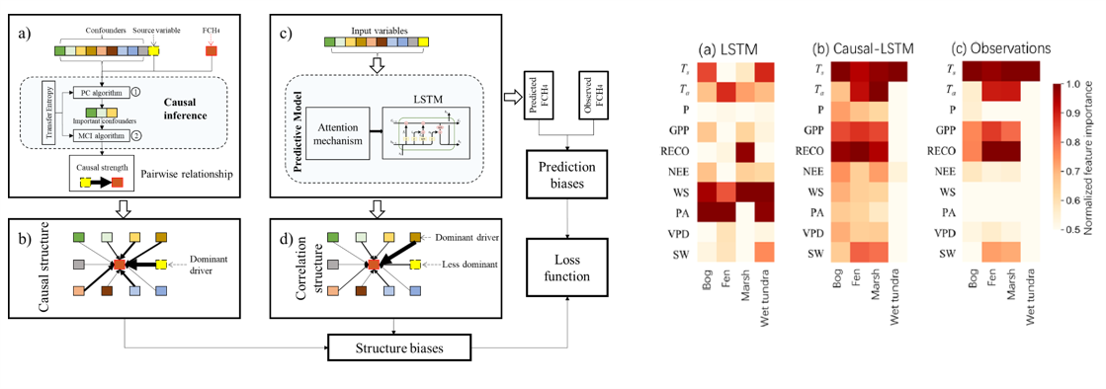Advanced AI for Earth Science Studies
We develop interpretable AI and causal inference approaches to understand the complex Earth system.
Earth system models driven by domain-knowledge are physically interpretable, but generally exhibit lower accuracy than machine learning models due to limited observational constraints and substantial uncertainties in model structures and parameterizations. Data-driven machine learning models generally have higher accuracy but are black-boxes with high risk of overfitting and low confidence for future climate projections. Therefore, we focus on developing and applying advanced causality inference approaches to understand and reduce uncertainties in Earth system models, and using inferred causal relationships and domain knowledge to inform and improve machine/deep learning models.

Related publications:
2024
- Projecting large fires in the western US with an interpretable and accurate hybrid machine learning methodEarth’s Future, 2024
2023
- Predicting climate conditions based on teleconnectionsJun 2023US Patent 11,668,856
2022
- Building a machine learning surrogate model for wildfire activities within a global Earth system modelGeoscientific Model Development, Jun 2022
- Understanding and reducing the uncertainties of land surface energy flux partitioning within CMIP6 land modelsAgricultural and Forest Meteorology, Jun 2022
- AttentionFire_v1. 0: interpretable machine learning fire model for burned area predictions over tropicsGeoscientific Model Development Discussions, Jun 2022
- Causality guided machine learning model on wetland CH4 emissions across global wetlandsAgricultural and Forest Meteorology, Jun 2022
- AttentionFire_v1. 0: interpretable machine learning fire model for burned area predictions over tropicsGeoscientific Model Development Discussions, Jun 2022
2021
- Deforestation reshapes land-surface energy-flux partitioningEnvironmental Research Letters, Jun 2021